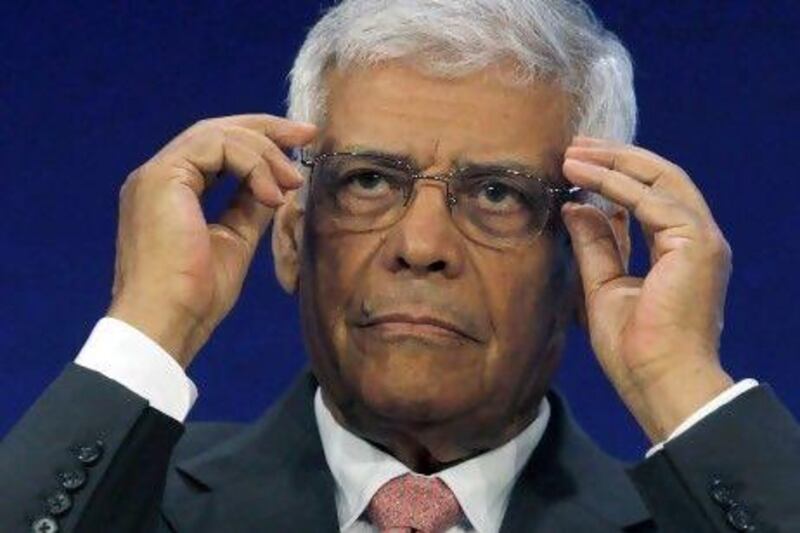VIENNA // Opec denied yesterday that its failure to reach a decision on crude supplies for the second half of this year meant the oil exporter group had lost relevance.
Abdalla el Badri, the Opec secretary general, insisted that it could still take action in the event of an oil shortage.
"Don't worry, there is no shortage," Mr el Badri told a World Economic Forum conference in the Austrian capital.
"If we see a shortage developing, we will alert our members."
Oil rose for a third day in New York amid speculation the failure to reach a decision in Vienna may limit supply. Brent Crude traded above US$118 as Mr el Badri made his comments.
He said the disagreement that left representatives of Opec's 12 member countries hopelessly split at Wednesday's meeting was economic, not political.
"This time we did not agree, but this is not the end of life for Opec," he said during a panel session on energy security. "We will have another meeting and another meeting until we have a solution."
Mr el Badri said Opec was seeking a "moderate", "reasonable" oil price acceptable to both producers and consumers while allowing producers to continue investing in oil development.
On the issue of pressure on Opec from oil-consuming nations to increase output, he said the group had to listen to the world. Nevertheless, he criticised the International Energy Agency, the organisation based in Paris that represents the energy interests of 28 industrialised countries, for boosting expectations of what Opec could realistically achieve.
Nobuo Tanaka, the agency's executive director, "is my friend, and we talked together on the telephone and he asked us to increase our output", Mr el Badri said. "But I wish he would not talk to us before the meeting. Before the meeting, he put a very harsh request for 3 million barrels per day [of additional Opec production], and it was out of sight."
Opec's spare capacity stood at about 4.5 million barrels per day (bpd), so it would not have a problem supplying an extra 2 million bpd of crude to the world if required, he said.
Mr el Badri put the case on Wednesday to Opec delegates for raising output by 2 million bpd from current levels in the third quarter and 1.5 million bpd in the fourth quarter.
Gerhard Roiss, the chief executive of the Austrian oil group OMV, who was on the same panel as Mr el Badri, said the wait-and-see approach was not unreasonable in light of current economic uncertainties.
"We have to respect Opec's decision," he told the conference. "I think it is a wise decision."





